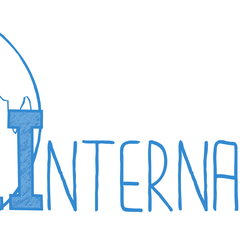
Patient Activism is Seizing the Spotlight—And Rightly So
1 May 2018, 1:16 p.m. in #insulin4all USA, News & Statements by Fran Quigley
In April, I published an article in the Washington Monthly (“Their Own Medicine”) that highlighted T1International’s activism, including the first-of-its-kind demonstration in front of Eli Lilly headquarters last fall. The article included this quote from Elizabeth Rowley, explaining why T1International refuses to take pharma industry donations, but will never stop speaking up:
“It’s just so important for the public to hear from the patients who are struggling, because they are the ones who know best,” Elizabeth said.
Just a few days before my article came out, Kaiser Health News published a disturbing report, “Patient Advocacy Groups Take in Millions from Drugmakers-Is There a Payback?” As the title suggests, the article outlined the big money that pharma companies are throwing at patient groups, and how most of those groups then pull their punches in opposing their donors’ skyrocketing price increases. But that Kaiser Health News report also included its own reference to the Eli Lilly demonstration, and the demand for transparency T1I made there:
“Over the past 20 years, Eli Lilly has repeatedly raised prices on its bestselling insulins, Humalog and Humulin, even though the medicines have been around for decades. The drugmaker faced protests — by people demanding to know the cost of manufacturing a vial of insulin — at its Indianapolis headquarters last fall.”
To me, it is no surprise that T1I’s advocacy is in the news, along with the advocacy of other groups like Patients for Affordable Drugs. In my day job as a law school professor, I have the privilege of teaching about social movements. We learn that the history of world-changing campaigns like the U.S. civil rights and anti-apartheid movements shows that the front line of activists must be people directly impacted by the injustice that is being targeted. If the struggle for affordable medicines crisis is to be won, it will happen when those patients—those most directly impacted—are the heart of the movement.
As I quoted Diarmaid McDonald of the Just Treatment campaign in the U.K. in my article, “There is always an important role for the expert, the policy researcher, for those gathering evidence. But there will be very little change if you don’t have direct patient advocacy to decisionmakers.”
We know McDonald’s observation is true, because patients have taken on Big Pharma before—and won. The breathtakingly successful HIV/AIDS treatment movement of the turn of the century was led by passionate, determined patients who made it clear to the world that they were fighting for their lives. As one HIV-positive activist said at a protest, “You are denying me drugs. Look me in the face and tell me to die.”
Those kind of protests (which were quite similar to the Lilly protest) mobilized patients and helped ratchet up the public pressure on pharma companies and the governments that had been protecting them. It took years of persistence, but eventually, the companies cracked. Antiretroviral drug prices plummeted over 90% nearly overnight, saving millions of lives.
In today’s struggle on insulin pricing and other drugs, patient can win the day again. So our organization, People of Faith for Access to Medicines, is proud to be in support of T1International’s amazing work, from the Eli Lilly demonstration to the #insulin4all meetups in New York City and the Cincinnati area.
And you can count on us to be at your side in all of the advocacy yet to come. We are convinced that we are going to win the fight for affordable medicines. And we are convinced that you will lead the way.










